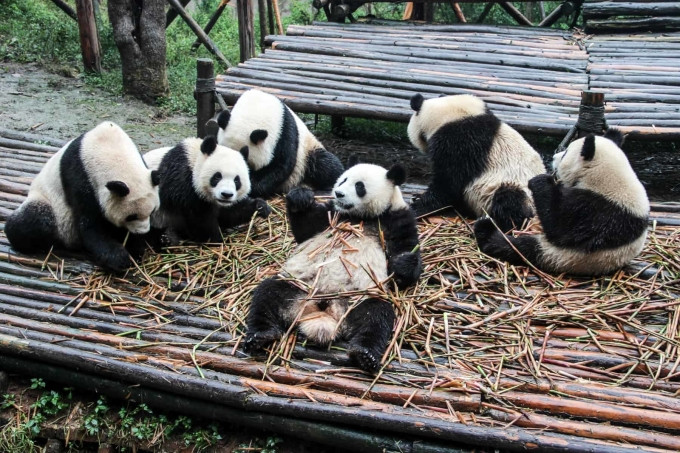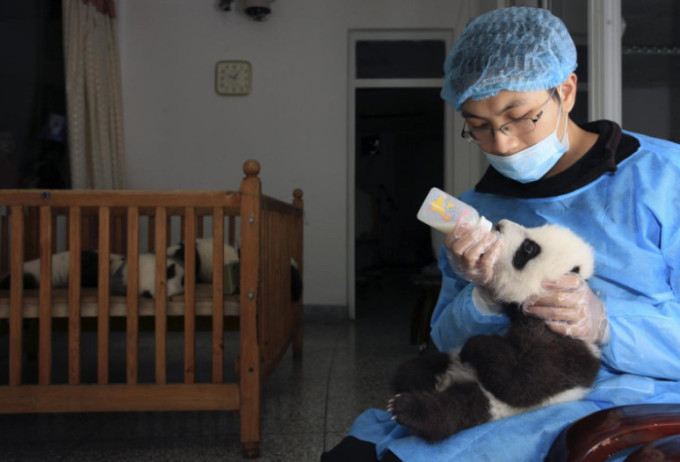
According to a notice on the center's WeChat account, 12 tourists aged between 26 and 61 were caught throwing bamboo shoots, candy sticks, cigarettes, eggs, bread, and even spitting into the pandas' outdoor play area.
The sanctuary did not disclose the nationalities or specific identities of the visitors who were barred. These were isolated violations that occurred sporadically between April and June this year.
One of the 12 visitors ignored the staff's instructions and poked the panda with an umbrella through the fence, potentially causing injury to the protected animal. Fortunately, after checking, veterinary staff confirmed that the panda's health was not affected.
The Chengdu Research Base of Giant Panda Breeding, a popular destination for domestic and foreign tourists, stresses strict rules for visitors on its website, including keeping quiet and avoiding close contact with the pandas. "Littering, spitting, throwing food into the pandas' play area and other behaviors that threaten their safety are strictly prohibited," the website reads.
Violations of these regulations can result in different levels of punishment, such as warnings and education , a one-year, five-year, or even permanent ban, depending on the severity of the behavior. This is not the first time the center has imposed a permanent ban. In April, the reserve's management board issued similar punishments to six visitors for "unsightly behavior," including a young man who deliberately sprayed water at a panda.
The problem of “uncivilized tourists ” is not limited to the Chengdu Panda Research Center, but also to many other attractions. In 2018, four Chinese tourists were blacklisted at a nature reserve in Shaanxi Province for throwing rocks at pandas. Last year, a male tourist was banned from Shanghai Disneyland for yelling at staff when asked to stop smoking.
Uncivilized behavior at tourist attractions has been listed by the country's General Department of Tourism with specific sanctions. Tourists will be blacklisted if they behave uncivilly, destroy public or private property, disrespect local customs, or destroy historical artifacts. Depending on the severity, the behavior will be subject to administrative penalties, bans, or imprisonment.

Established in 1987, the Chengdu Research Center for Giant Panda Breeding aims to become a " world- class research base, education center, conservation center, and international tourist attraction." In 2006, the center was ranked second in China's five-star rating system for tourist attractions. The site once welcomed more than 9 million visitors in just one year.
At the center, visitors can tour designs simulating the panda's natural habitat and learn how scientists study the species' habits.
The conservation efforts of Chinese scientists here have paid off. As of 2023, the center has successfully bred and raised more than 200 pandas. In 2018, the World Wildlife Fund (WWF) upgraded the conservation status of pandas from "endangered" to "vulnerable", a one-level warning level reduction.
TB (according to VnExpress)Source: https://baohaiduong.vn/trung-quoc-cam-cua-vinh-vien-du-khach-thieu-ton-trong-gau-truc-385224.html





























![[Photo] Nghe An: Provincial Road 543D seriously eroded due to floods](https://vphoto.vietnam.vn/thumb/1200x675/vietnam/resource/IMAGE/2025/8/5/5759d3837c26428799f6d929fa274493)



































































Comment (0)